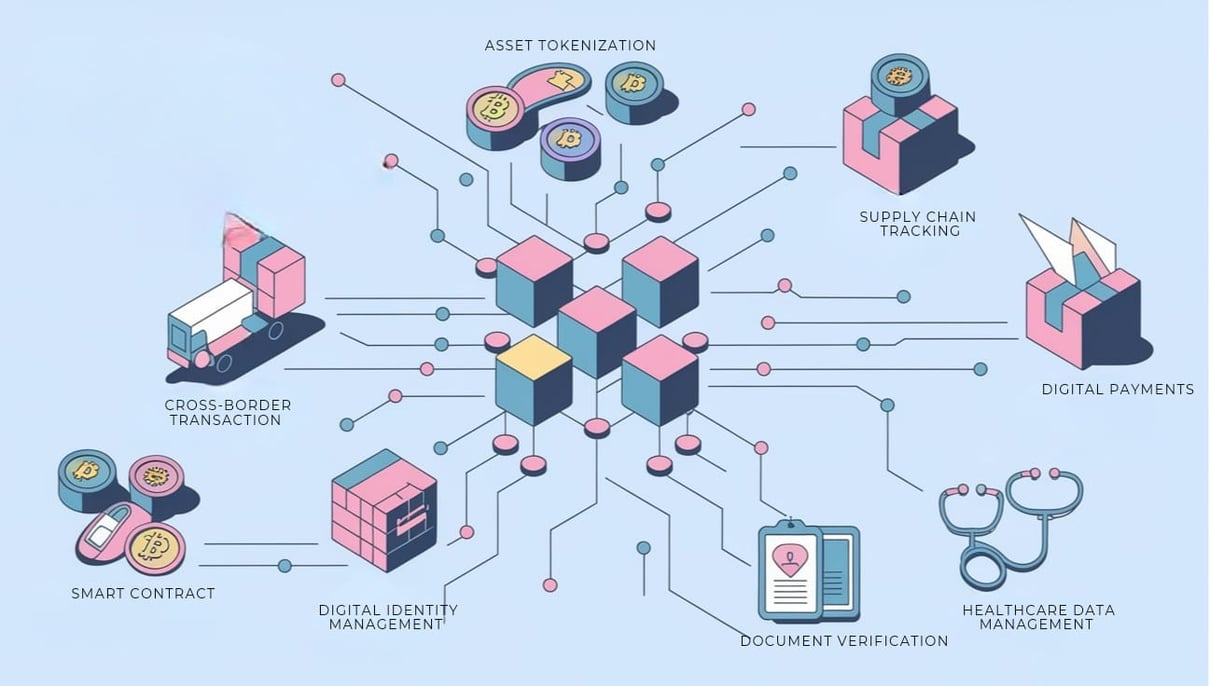Why Blockchain is More Than Just Cryptocurrency
Blockchain technology is revolutionizing industries far beyond digital currencies like Bitcoin and Ethereum. Discover how blockchain is transforming supply chain management, voting systems, digital identity, and healthcare with its decentralized and secure ledger system. The future of blockchain is limitless, promising transparency, security, and efficiency across various sectors. #Blockchain #Cryptocurrency #SupplyChain #Voting #DigitalIdentity #Healthcare #Decentralization #TechRevolution #FutureTech #Innovation
BLOCKCHAINDIGITALCURRENCY
Kunga Dorjee
1/5/20252 min read


Blockchain technology is most commonly associated with cryptocurrencies like Bitcoin and Ethereum. However, this powerful technology has far-reaching implications beyond the world of digital currencies. In fact, blockchain is poised to revolutionize many industries, offering solutions that go beyond the realm of finance.
What is Blockchain, Really?
At its core, blockchain is a decentralized and distributed ledger that records transactions across multiple computers. This ensures that the data is secure, transparent, and cannot be altered without consensus from the network. The decentralized nature of blockchain removes the need for a central authority, making it an attractive option for a wide range of applications.
Real-World Blockchain Applications
While cryptocurrency remains the most prominent use case for blockchain, its potential goes much further:
Supply Chain Management: Blockchain can improve transparency and traceability in supply chains. By tracking products from origin to destination, blockchain ensures that all stakeholders can verify the authenticity and condition of goods. This can help reduce fraud, ensure product quality, and streamline operations.
Voting Systems: Elections have historically been prone to fraud and errors. Blockchain offers a secure and tamper-proof way to record votes, making the process more transparent and trustworthy. With blockchain, each vote can be securely stored and verified, ensuring the integrity of the election process.
Digital Identity: Blockchain can provide individuals with control over their own digital identities. Instead of relying on centralized systems, which are vulnerable to hacking, blockchain allows users to store and share personal data securely. This can be a game-changer for online privacy and security.
Healthcare: Blockchain can help transform the healthcare industry by ensuring the secure sharing of patient data. It can also improve the tracking of medications, reducing counterfeiting and ensuring that patients receive the correct treatments. Blockchain's transparency and security can streamline healthcare processes, improving patient outcomes and reducing costs.
Blockchain's Future Potential
The possibilities of blockchain technology are virtually limitless. As the technology matures, it is expected to play an integral role in transforming industries like banking, real estate, and even entertainment. The decentralized nature of blockchain offers an alternative to traditional centralized systems, promoting transparency, security, and efficiency.
As we continue to explore and implement blockchain solutions, it's clear that this technology is not just a trend, but a foundation for the future of many sectors. While cryptocurrency remains its most well-known application, the true power of blockchain lies in its ability to address real-world challenges across a wide range of industries
